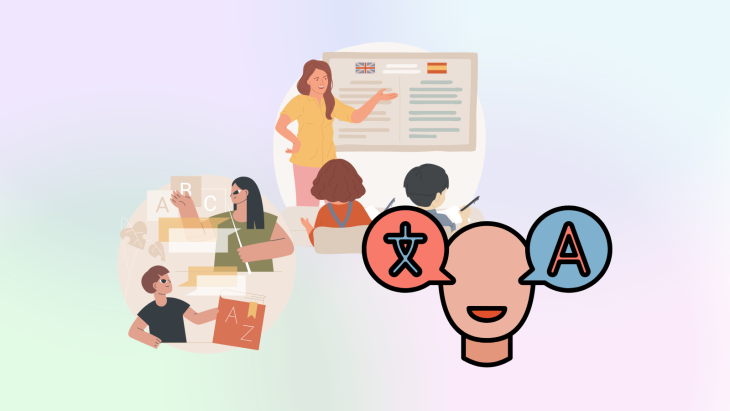Recent Posts
- Men masking mental health issues. Why is men's mental health declining in the US?
- I am hesitating on joining the armed forces! Are people in the armed forces more prone to mental health problems?
- Getting acquainted with the 7 types of anxiety disorders. What do I need to know about them?
- My husband needs to recover from alcohol dependence and mental health issues. How can I help him?
- Are there good and bad debts? And how does debt impact mental health?
Most Popular
Does bilingualism in children delay language development? Busting misconceptions on bilingualism and language development.

It is not anymore uncommon to hear of or know someone who is able to speak 2 or more languages in the US. In fact, recent statistics from the US Census Bureau show that 1 in every 5 people in the US are either bilingual or multilingual. Worldwide, statistics say that almost half of the world’s population are bilingual!
Among US children aged 5 to 17 years old, 2 in 10 also speak another language aside from English at home and the number of bilingual children is expected to grow.
Why is this so? Possible reasons include the children’s parents not being able to fluently speak the dominant language used in the community, parents’ preference of raising the child bilingual, and the benefits of being bilingual.
Myths and misconceptions about children learning another language
You might have heard both sides- the said harms and benefits of raising children bilingual. The advice parents receive might be mixed. Some recommend not exposing children to another language until they are older, while some advocate for it based on the benefits.
Let us look at these claims and see what science says.
- Bilingual children are confused.
However, when it comes to learning two languages, it is common to do this. One, young children imitate the words used by caregivers, and they are limited to what they have learned at a young age. Borrowing from one language in order to communicate effectively as their vocabulary allows is not confusion.
- Bilingual children are smarter.
In this way, bilinguals are able to improve their social skills. They are better at considering other people’s perspectives, and become more sensitive to the use of different tones of voice.
Studies of bilinguals also show they perform better in multitasking, have better memory and can make connections between events better. Researchers think these cognitive benefits come from training the brain early to switch from one thing to another, and from being exposed to many rich experiences at a young age.
- It is best to start learning another language at the earliest age possible.
However, this belief has been contradicted by research. Although earlier is better, and there is indeed a slowing down in our ability to learn a new language as we age, there are more important factors that allow us even as adults to learn a new language.
These factors include being exposed to an environment where the language is richly spoken, hours spent in language practice, other learning opportunities, and fun interactions with native speakers.
- Are bilingual children more prone to language delays and language disorders?
Parents who worry about these concerns can consult their trusted family doctor, pediatrician and even ask for a referral to a speech-language pathologist who is trained in bilingualism in order to address their concerns.
It is beneficial for health care providers and parents alike to reassess their view on early bilingualism so that children who grow up in a bilingual household might receive the support and the environment that they need to thrive.
Check out an extensive list of high quality healthcare and mental health related careers and find the right job opportunity for you!








Comments